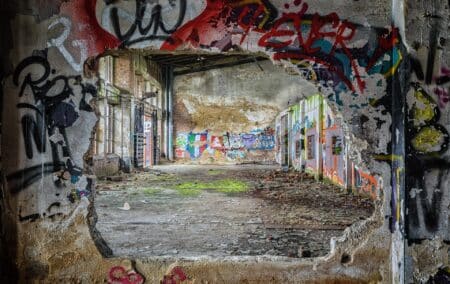“What would South Africa be like if the ANC ruled it for 27 years?” If this question had been asked in 1986, most whites (and probably many blacks in private) would have predicted utter disaster, as happened in Zimbabwe, Uganda, Burundi, Rwanda, Angola, Mozambique and other African countries post-colonisation. ANC rule began on 27 April 1994. Here is the good news: after 27 years, ANC rule has proved very bad but not utterly disastrous. We should be grateful.
In 1986, the ANC was led by Oliver Tambo, who presided over a reign of terror in the black townships, urging his thugs to kill poor blacks belonging to other black political movements. Their favourite method of terror was the necklace, by which innocent black people were slowly roasted to death. Tambo approved of it quietly, Winnie Mandela loudly, laughing with delight as some poor black man died in agony. The ANC demanded that poor black children should not go to school. Tambo sent his own son to a posh private school in England, Winnie Mandela sent her daughters to the posh colonial school of Waterford in Swaziland. Tambo presided over the ANC’s Camp Quatro in Mozambique, where he urged the torture and execution of comrades suspected of disloyalty. You might have expected the ANC in power to continue this terror, using the armed might of the state. It didn’t. Today the ANC ruins the education of poor black children, but it doesn’t kill them. However awful Jacob Zuma was as leader of the ANC, he wasn’t as bad as Oliver Tambo. We should be grateful.
The worst fate for African countries on gaining independence was tribal slaughter. The colonialists had decided on the borders of their colonies, oblivious to traditional African tribal territories, sometimes bringing together hostile tribes, sometimes dividing tribes. Often, when the colonists left, the tribe that found itself in power set about murdering the others. Our neighbour, Zimbabwe, is a good example. Shortly after independence in 1980, Robert Mugabe, the Shona President, set about the systemic slaughter of part of the rival tribe, the Ndebele in the south. This was Operation Gukurahundi (“wash out the chaff”), which began in 1983 under the direction of Mugabe’s chief butcher, Emmerson Mnangagwa, now President of Zimbabwe. Under the flimsy pretext of isolated terrorist incidents in Matabeleland, Mugabe sent in the death squads to kill anybody who spoke Ndebele rather than Shona. Pregnant Ndebele women had their unborn babies ripped out of their wombs. At least 20,000 black people were killed. The ANC knew this but never spoke a word of sympathy for the victims or criticism of the Zimbabwean Government. Since South Africa has even more tribes within her borders, and a terrible history of tribal war, you might have expected South Africa to descend into tribal slaughter after 1994. It didn’t happen. For this we should be even more grateful.
In 1986 the ANC’s only economic policy was communism – meaning total state control, and the abolition of private property and the market. In that case we should have suffered the fate of all communist states: famine, brutal oppression of the working classes by the bourgeois communist elite, and economic collapse. It didn’t happen. A main reason was the fall of communism in the USSR in 1989, which allowed FW de Klerk to make his famous speech in February 1990, which ended apartheid. The ANC’s economic ideology was blown away, and it defaulted to a vague acceptance of some market economy and some respect for property rights (which is now ending). In 2021, the economy has been greatly weakened but not collapsed altogether. We are not like North Korea or Cuba.
On independence in 1980, Zimbabwe’s white population was about 230 000. 27 years later it was below 30 000, a decline of 87%. In 1994, South Africa’s white population was about 5.2 million. 27 years later it is about 4.7 million, a decline of only 10%. In 1986 I’d have predicted a bigger decline.
The Zondo Commission is perhaps the most hopeful development in the last 27 years. Such a commission would be inconceivable in Zimbabwe or Cuba. In either country, Zondo would have been seized, tortured and executed. Corruption under the ANC has crippled our economy but at least it has been openly recognised (to some degree at least). In 1986, I shouldn’t have predicted that an ANC government would have allowed the Zondo Commission.
The prospects for South Africa are bleak but not catastrophic. There is no hope of economic prosperity under the ANC, and little hope of replacing the ANC for many years. EWC (Expropriation Without Compensation) probably means the ANC will follow Zimbabwe’s example of seizing productive property. Anyone who invests in this country is mad. More corruption, further decline, more unemployment and more crime seem inevitable. If you can emigrate, you’d be better off doing so, but you might miss our lovely weather and beautiful scenery. And some things here still do work to some extent.
Here’s the best we can say after 27 years of ANC rule: it could have been worse.
The views of the writer are not necessarily the views of the Daily Friend or the IRR
If you like what you have just read, support the Daily Friend

